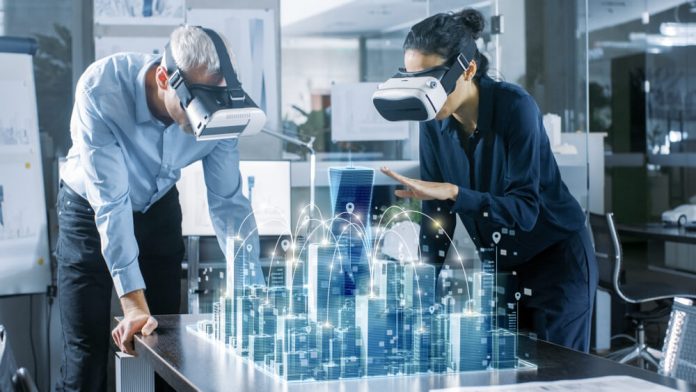
As we enter the new year, many of us attempt to emulate Nostradamus by forecasting what will happen in the months ahead. Unfortunately, few of us prove prescient as the future is hard to know. So instead of making predictions, I thought I would instead make three somewhat provocative proposals about what the future of work should look like by the end of the decade. These topics range from time to technology and transferability—and apply to all industries and all colors of collars. It will be up to you to decide if these recommendations are worth working toward, or just more prognostic rubbish.
1. Time: We should spend less time at work.
The remote work revolution was activated by the pandemic, but it will be preserved by Generations Y and Z, who have prioritized well-being over work. While certain vocal personalities such as JP Morgan CEO Jamie Dimon have made it clear that they are not fans of working from anywhere but the office, most business leaders have come to the realization that the genie is out of the bottle. That does not preclude a return to the workplace; rather, it means hybrid work arrangements (a blend of on-site and remote work) are likely the new normal.
If Dimon dislikes remote work, he is going to hate one of the newest trends: the four-day week. This does not refer to four 10-hour days mind you… this movement is all about eight-hour days for a total of 32 hours a week with the same pay and benefits. Pilots have been underway in more than two dozen countries, from the U.S. and UK to Japan and Australia, and the results have been overwhelmingly positive. Approximately 78 percent of employees who participated in these trials have reported being happier and less stressed, while the majority of the organizations said they had experienced no loss of productivity and some had even seen some improvement. Is it really possible to spend less time in the office, less time working in general, and still keep the wheels of commerce turning? Thanks to asynchronous, non-linear work and new technologies, the answer is, “Yes.”
2. Technology: We should embrace technology to become more human.
Prior to the pandemic, the hot topic in the world of work was how technology—notably artificial intelligence (AI) —was coming for our jobs.
There is growing evidence that new technologies could have significant social and material impacts on work, job quality, and ultimately wider society. It is time to embrace technology for what it is—a way to augment human talent to meet the needs of the organization while improving the quality of life for individuals. If AI can automate administrative, transactional tasks for doctors, lawyers, and accountants, it can unquestionably handle elements of your job. “Computers are good at the jobs we find hard, and bad at doing the ones we find easy,” says Michael Priddis, founder and CEO of Faethm by Pearson. As such, we can’t treat people like machines, or treat machines like people. The key will be to strike a balance that allows technology to augment humans while enabling people to reach their full potential. Human potential is virtually limitless, while the most sophisticated technology is only capable of doing what it was programmed to do. In “The Work of the Future,” the authors suggest that “the future of AI is the future of work.” Embracing a collaborative relationship with technology instead of an adversarial one is important today, and will be increasingly important tomorrow.
3. Transferability: We should hire for social skills and digital dexterity.
The average shelf life of skills in today’s world of work is shrinking as emerging technologies, evolving business models, and new social norms are changing faster than at any point in human history. That is why it has become critical to focus on building durable, transferable skills that will future-proof our ability to remain relevant despite the ongoing environmental changes happening around us. If we peer out into the distant future, we may not find anything that resembles what we consider a “job” today. But there are skills and capabilities that will continue to serve us well despite the changes happening all around us—just don’t call them soft.
If the promise of technology holds true and we find ourselves outsourcing administrivia to our robot colleagues, human-centered skills will take center stage. Historically referred to as “soft skills,” social and emotional intelligence, communication, active listening and even empathy more recently have been referred to as “power skills.” Beyond these interpersonal skills, there is also a growing need for advanced cognitive capabilities such as critical thinking, problem solving, and complex information processing and interpretation. And the one aptitude that may be the most important of all is adaptability.
Regardless of what industry you are in, digital dexterity has become fundamental for the modern workplace. Coined by analytics firm Gartner, the focus is on employees constantly upskilling their technical knowledge and capabilities as the pace of digital transformation continues to accelerate. Before you dismiss digital as the realm of IT, it is important to recognize the growing importance for these abilities in all disciplines of the business. “The demand for digital skills continues to surge in IT, but the fastest growth is occurring in nontraditional functions such as marketing, finance and sales,” says Kenneth Pyle, senior director, Advisory at Gartner. “And it’s not just happening in Silicon Valley tech companies but across all industries and regions.”
Helping People Reach Their Potential
Instead of attempting to predict the future, we all would be better served by producing the appropriate people practices that will allow individuals to reach their full potential. This involves a new mindset about how much we work, the type of work we do versus machines and how we future-proof ourselves. Time will tell what the future holds for humanity, but technology will continue to transform, and people with transferable skills will be the ones thriving regardless of what the new world of work becomes.




